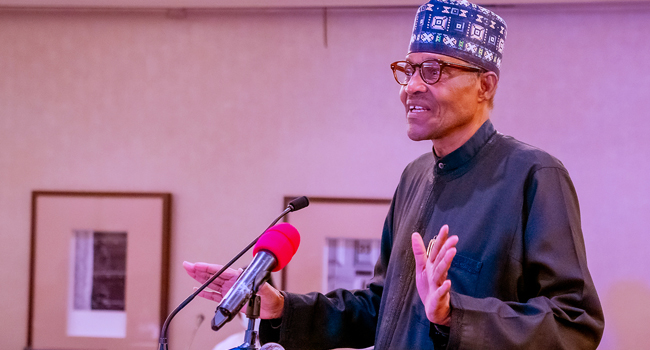Socio-Economic Rights and Accountability Projects (SERAP) has written to President Muhammadu Buhari, to explain why N500 billion was being spent yearly on poverty alleviation programmes, yet 133 million Nigerians live in poverty.
Newsonline reports that SERAP is demanding an investigation into the usage of the N500 billion and the repatriated $700 million Abacha loot.
In a statement on Monday, SERAP asked “President Muhammadu Buhari to promptly set up a presidential panel of inquiry to thoroughly, impartially, effectively and transparently investigate spending on all social safety nets and poverty alleviation programmes and projects executed between 2015 and 2022.
“We also urged him to ensure the findings of any such investigation are widely published, and suspected perpetrators of corruption, and mismanagement of public funds meant to take care of the poor should face prosecution as appropriate if there is sufficient evidence, and any stolen public funds should be recovered.
“A recent report by the National Bureau of Statistics (NBS) shows damning revelations that some 133 million Nigerians are poor, despite the government reportedly spending N500 billion yearly on ‘social investment programmes.’ Half of all poor people in the country are children.
READ ALSO: Video: ‘His Energy Is Failing From What I Saw Of Him…’ – El-Rufai On Tinubu
“The report suggests a grave violation of the public trust, and the lack of political will to genuinely address poverty, and uphold your government’s constitutional and international human rights obligations.
“The report that 133m Nigerians are poor suggests corruption and mismanagement in the spending of trillions of naira on social safety nets and poverty alleviation programmes, including the reported disbursement of over $700m from the repatriated Abacha looted funds to these programmes.
“The Buhari government has legal obligations to effectively and progressively address and combat extreme poverty as a matter of human rights.
“The failure to address extreme poverty has resulted in high levels of inequality, and serious violations of economic and social rights of Nigerians, particularly the socially and economically vulnerable sector of the population.
“The letter, copied to Mr. Olivier De Schutter, UN Special Rapporteur on extreme poverty and human rights, read in part: “These grim revelations by NBS show the failure to fulfill his oft-repeated promise to lift 100 million Nigerians out of poverty and that no one will be left behind”.
“We would be grateful if the recommended measures are taken within 7 days of the receipt and/or publication of this letter. If we have not heard from him by then, SERAP shall take all appropriate legal actions to compel his govt to comply with our request in the public interest.
“The report also shows that the purported social safety nets and poverty alleviation programmes are clearly not working. It also shows a failure by his government to uphold the constitutionally and internationally guaranteed human rights of the Nigerian people.
“We also urge him to prioritize investment in quality education and healthcare and to redirect some of the unnecessary spending in 2023 budget such as spending by the presidency on feeding and travels and money allocated to NASS in the budget to address poverty as a human rights issue.
“A supplementary appropriation bill, which reflects the proposed redirected budget should be urgently sent to the National Assembly for its approval.
“The Buhari government has a sacred duty to ensure transparency and accountability in the spending of the country’s resources, including the spending of public funds on social safety nets and poverty alleviation programmes and projects.
“Allegations of corruption in social safety nets and poverty alleviation programmes pose both direct and indirect threats to human rights, and contribute to extreme poverty in the country. Nigerians have the right to be free from poverty.
“Extreme poverty is the greatest denial of the exercise of human rights, as it denies millions of Nigerians not only their economic and social rights but also civil and political rights such as the rights to life, human dignity, and political participation.
“Political freedom and participation are closely related to human development. Without economic and social rights, people cannot effectively enjoy their political freedom.”














